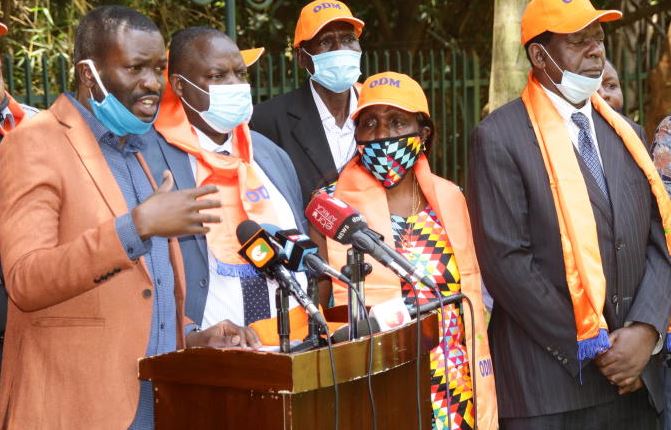×
The Standard e-Paper
Stay Informed, Even Offline

A crucial Orange Democratic Movement organ wants President Uhuru Kenyatta and the party leader Raila Odinga to expedite the Building Bridges Initiative (BBI) process so that a referendum can be held in good time.